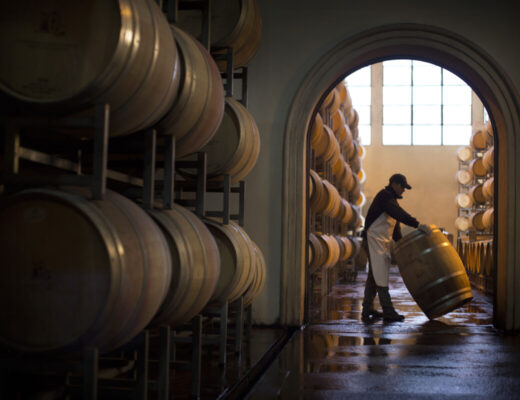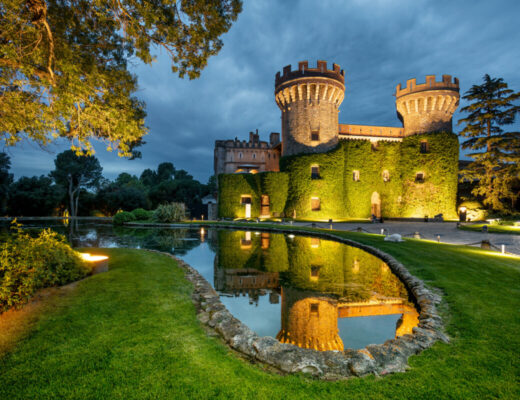For much of Portugal, winemaking is at the heart of the country. Most people will know about Douro’s Port wines in Portugal’s north region near Porto, but if you travel two hours southeast of Lisbon you’ll hit another historically significant wine region – Alentejo.
Here, you’ll find winemaking techniques invented by the Romans, and still to this day, generation after generation, this classic winemaking process unique to this area is safeguarded. Known as Talha wines (Talha meaning wine made in a clay amphorae), Alentejo has long been the guardian to this unchanged-by-time traditionally made wine.
The oldest vineyards in this part of the country are found between the villages of Vila Alva and Vila de Frades, producing grapes from the area’s traditional white and red grape varieties, some of which are almost extinct. The fields around Vila Alva not only boast vineyards, but also cork oak forests, olive groves and fields of wheat.
In the predominantly sandy soils, of granitic origin, defended from the north winds by the Portel ranges and with a strong influence from the Guadiana River basin and Alqueva Lake, extraordinary microclimates well-suited for grape production abound.
Talha Wine: the tradition, the process
Developed by the Romans and brought to Portugal two thousand years ago, Vidigueira Vinho de Talha DOC is the greatest symbol of the Alentejo. DOC stands for Denominação de Origem Controlada and means the wine comes from a strictly defined geographical area with recommended and permitted grapes and maximum vine yields (to control quality).
The technique of producing the area’s wine in large earthenware vessels, amphorae or pots, has survived over the centuries and, due to its simplicity and naturalness, is integrated into the daily lives of Alentejo people. Any farmer with a vineyard could not do without his own “talhinha” (small clay pot).

Amphorae clay pots are the symbol of Talha winemaking.
With its two thousand years of history in the Alentejo, Talha wine does not need a press or closed presses. Having just arrived at the winery, the grape bunches are freed from their stalks and crushed. These wine masses are immediately placed inside the clay pots where about 24 to 48 hours later a process of spontaneous fermentation will begin.
During vinification, which will take place over a period of between 10 and 15 days, it will be necessary to break the “blanket” that forms on the surface of the talha. So, in the morning and in the afternoon, you have to climb the “burra” (wooden ladder) and, using a wooden squeegee, the dough is “stirred”, which allows the skins and seeds of the grapes in the must, guaranteeing the extraction of essential components to release the aromas and flavours.

Ancient indigenous grape varieties are used in conjunction with maximum vine yields (to control quality).
In order to keep the environment as cool as possible and control the fermentation temperature, which should be between 17ºC and 18º, the talhas are moistened directly with water or cloths several times a day.
Once the vinification process is over, it will be necessary to wait a few more weeks until the solid part of the bunches and some stems are deposited at the bottom of the talha. This mass will be vital, as it will allow the natural filtration of the wine when the jars are opened – an event that, by tradition, usually takes place on the feasts of São Martinho (St. Martin) on November 11.
When the wine has rested for a few weeks in contact with the solid wine masses, the bung (cork stopper) is perforated and a tap is placed to seal the same hole, 30 centimetres from the bottom of the talha. This process gives the wine its particular aromas and flavours.
Want to know more about Talha wine? Visit the Centennial Vineyards of Vila Alva and discover the uniqueness of the ancient Alentejo landscape, or take a virtual trip on their website at https://vinhascentenarias.pt.
– Written in partnership with Vinhas Centenarias
![]()













